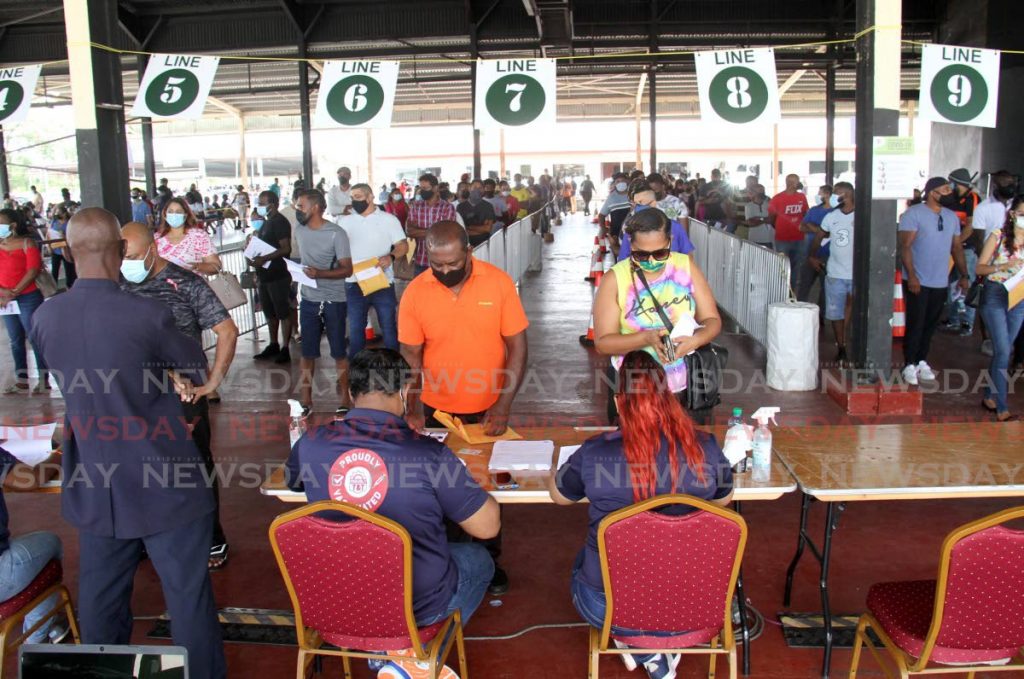How vaccination debate changes the workplace environment

There is a not unreasonable assumption in the conduct of business that there is an advantage in “taking in front before in front takes you.”
As the government has loosened restrictions on at least a few more parts of the economy this week, it has brought to the surface the much-publicised ongoing struggles between those workers willing to be vaccinated and those, holding on to their constitutional rights to decide on intrusions into their physical bodies, who are not willing to. It is therefore not unreasonable to predict some industrial-relations conflict on who gets what job and under what conditions, when full occupancy resumes.
It is happening all over the hemisphere and even if you believe God is a Trini, we are not exempt.
Some of the new issues for which there are no legal or judicial precedents to guide this aspect of “the new normal,” because they are issues that have not arisen before, are the following:
How does the employer set a value on the services of permanent employees who only agree to work if a majority of their co-workers are vaccinated?
How does an employer setting up a business for the first time set a value on new jobs in relation to those who will face public contacts who may or may not be vaccinated, when demanding evidence of vaccination status from customers has no legal authority, at least not in Trinidad and Tobago?
Since vaccination in itself does not prevent the spread of any virus, current or future mutations, how does an employer set a value on employees, already employed, who refuse, as is happening in Barbados, to work alongside people who are vaccinated, as there is a new theory spreading across the Caribbean that the vaccines themselves can spread a viral contamination that destroys natural antibodies?
If an employee, in one of the above instances, refuses to return to work if required to work next to co-workers who are vaccinated (or not vaccinated, as the case may be), can the refusal to work, or to return to work, unless their conditions be met, be regarded as a self-termination of their employment contract if returning to work is required?
If five or more employees band together demanding either that they work in an environment where no one or everyone is vaccinated, can this be regarded as illegal industrial action? Can it be regarded as, to quote the Industrial Relations Act Section 2 (1): “a failure to commence work or a refusal to continue working by reason of the fact that unusual circumstances have arisen that are hazardous or injurious to health or life” – in which case it would not be regarded as illegal industrial action? Are the circumstances really that unusual?
If such action by a number of employees, acting in concert, is therefore defined as: "strike action taken to compel the employer to agree to terms of employment or to comply with any demands by those workers,” to quote the Industrial Relations Act again, will Section 62 (2) of the act, which says: “Nothing in subsection (1) (the part of the act that protects the striker from dismissal or removal from terms of the collective agreement ‘if any’) shall be construed as imposing on an employer any obligation to pay for any services of a worker that are withheld as a result of strike action that is taken in conformity with this part” be applicable?
There are a number of other questions that, inevitably, will also arise in this new normal, for which there are no easy answers, and which may not be answered by a summary enactment of mandatory vaccination for all workers, which anyway, if legislated, would draw almost universal condemnation from the Commonwealth, the US and non-dictatorships in Latin America.
Under the new restrictions placed by all kinds of regional and international trading bodies on member states to prevent such things as child labour, indentureship, forced labour and other labour practices perceived as contrary to human rights, answering these questions the wrong way can result in the cancellation of contracts.

I am informed that, owing to huge penalties having been levied on large corporations for violations of workers’ rights over the past three years, many international companies now require from their franchisees, or even their trading partners and procurement sources, evidence of written employment policies guaranteeing observance of human rights which their own trade regulators demand. As these develop and new ones are imposed in the worldwide new normal, this could threaten to sever trade relations if we ignore them. At a time when our economy can least afford to lose foreign exchange, it could damage vital parts of the economy.
Then there is the question: if the delta variant is as virulent as claimed, will the provisions in some employment contracts that promise to pay people a “non-sick leave bonus” for not taking sick leave (even if they feel awful) stand? If people are holding on to their jobs to collect the money and possibly thereby infecting colleagues and the community as a whole, with the dangerous delta on our doorstep, what safeguards will be allowed in light of the danger? Will the OSH Act kick in, as it has done in the past on the possibility that workers’ health might be affected?
As it seems inevitable that some employees, having become accustomed to doing so over the past 18 months, will want to continue working from home, and, over time can legitimately claim those jobs in which it is possible to establish this as a permanent feature should stay so permanently, will this affect the wage or salary values of the job?
We are entering a new business environment. Are plans in place to handle it?


Comments
"How vaccination debate changes the workplace environment"